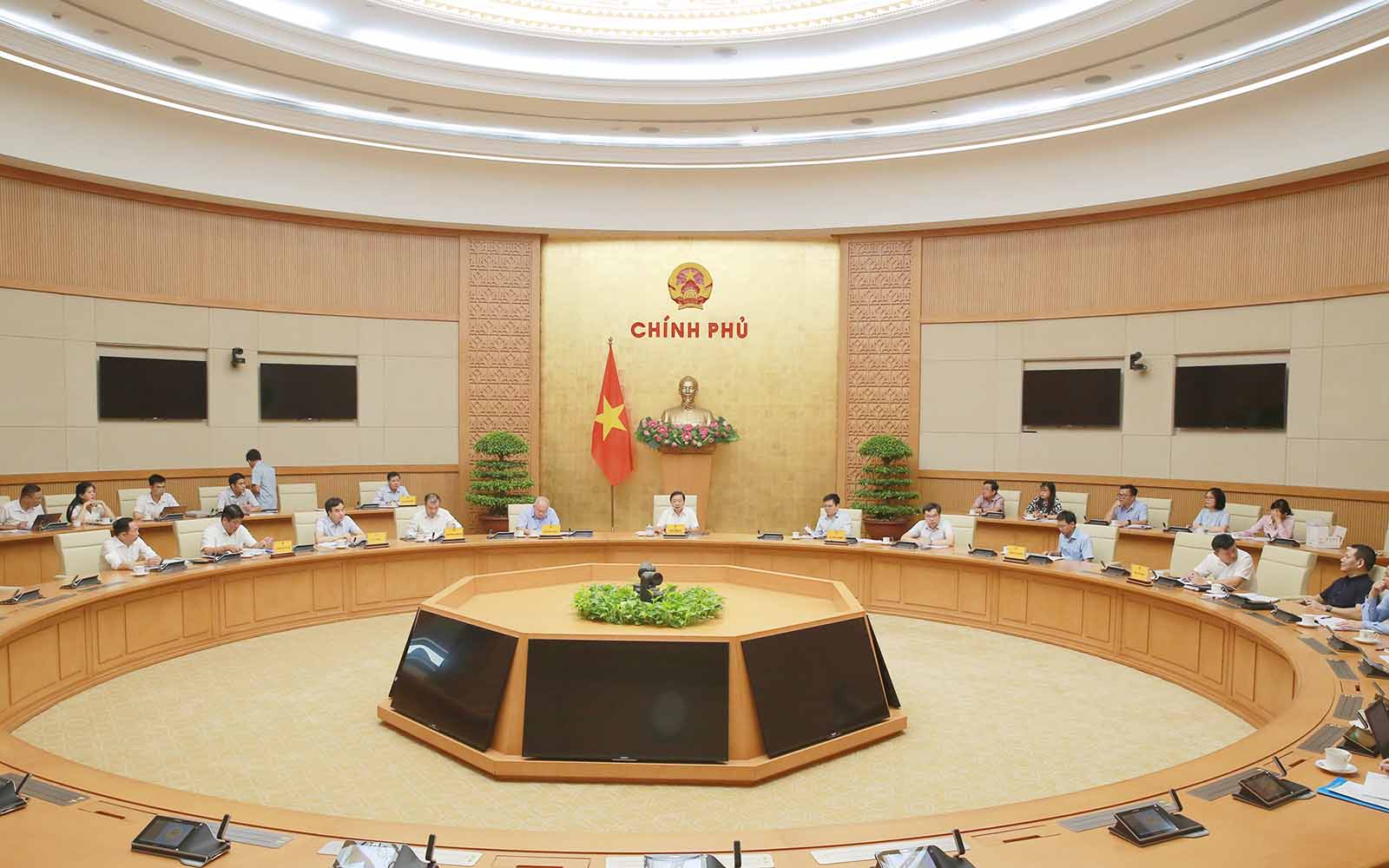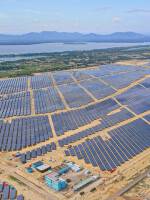
Deputy Prime Minister Trần Hồng Hà called for creating a new legal framework for the fossil energy conversion policy to green and renewable energy, at a meeting on the amended draft Law on Electricity on Monday in Hà Nội.
Emphasising the urgency of amending the Law on Electricity, the Deputy PM requested the Ministry of Industry and Trade (MoIT) to refine, supplement and address legal deficiencies and gaps in the electricity sector.
Incorporating feedback from the meeting, Deputy PM Hà stressed the need for the law to separate state management from business and production, establish a legal framework for research, technology acquisition and transfer of new energy technologies and promote the development and export of offshore wind power and production of green fuels, such as green hydrogen and green ammonia.
Highlighting the focus on clarifying three major policy groups, the Deputy PM noted that the most challenging and critical policy group involves developing the electricity market under a market economy regime, ensuring transparency and competition from selecting project investors to determining electricity pricing for consumers.
Regarding policies on transitioning from fossil energy sources to low-emission fuels or renewable energy sources and mitigating negative impacts during the energy transition on enterprises, citizens, and the economy, the Deputy PM underscored the imperative of establishing renewable energy industrial centres and offshore wind energy.
He emphasised the MoIT’s attention to regulations promoting efficient energy use, environmental protection and Việt Nam’s strategy to become a regional and global energy centre. The role of the state in ensuring energy system security, promoting the development of energy storage systems (battery storage, pumped hydroelectricity and safe nuclear power) to increase the deployment rate of renewable and new energy sources was also highlighted.
Reporting at the meeting, Deputy Minister of Industry and Trade Trương Thanh Hoài noted that the amended draft Electricity Law consists of 9 chapters and 119 articles. Notably, concerning electricity development planning and investment in electricity projects, the draft law supplements authorities and responsibilities of management agencies in formulating, submitting for approval, adjusting planning and implementation plans. It also supplements mechanisms for handling delayed projects and urgent investment in projects to address critical energy security issues.
The development of renewable energy and new energy is entirely designed to institutionalise the Party’s and State’s orientations and policies on this matter, especially in self-generated, self-consumed electricity and offshore wind power. Regulations on operating and regulating the national electricity system include new principles of operation, linking with foreign electricity grids and managing electricity demand, he added.
During the meeting, delegates focused on discussing issues related to electricity grid projects in the planning list with compulsory grades from 220kV and above, passing through areas of two localities and above. Also on policies for offshore wind power, restrictions on foreign investors’ access to the offshore wind power market and policies for rooftop solar power and small-scale wind power to serve household and state agency residential needs and public facilities.
(VNS)




